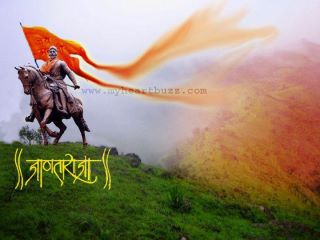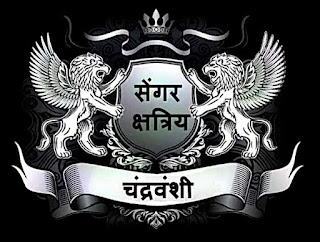Daughter of Netaji Subhas Chandra Bose
http://www.hindu.com/2001/02/25/stories/1325128q.htm
Daughter of Netaji Subhas Chandra Bose
नेताजी सुभाष चन्द्र बोस की बेटी अनिता बोस बाद के दिनों में ऑग्सबर्ग विश्वविद्यालय में अर्थशास्त्र की प्राध्यापिका बनती हैं। जर्मन संसद में ग्रीन पार्टी के सदस्य मार्टिन पाफ(Martin Pfaff) से वे विवाह करती हैं और उनकी तीन सन्तानों- यानि नेताजी के नाती-नतनियों- के नाम होते हैं- थॉमस कृष्णा, माया कैरिना और पीटर अरूण।
अनिता बोस पहली बार 18 वर्ष की उम्र में 1960 में भारत आती हैं और फिर 2005-06 में 63 वर्ष की उम्र में दुबारा भारत आती हैं।
दोनों बार देश उन्हें ‘नेताजी की बेटी’ का सम्मान देता है।
आज हार्वर्ड विश्वविद्यालय में सामुद्रिक इतिहास के प्राध्यापक सुगत बोस(Sugata Bose) नेताजी के पड़पोते- भतीजे के पुत्र- हैं।
Memories of a brave heart
Prof. Anita Bose Pfaff, Professor of Economics in Augsburg University in Germany, was among the more high profile visitors to the city in recent times. As the daughter of Netaji Subhas Chandra Bose, a prominent symbol in the freedom struggle, she was keenly followed by an audience yearning for genuine heroes - whether she went to a hospital or to a reception at the IIT. T. Ramakrishnan listens, as she talks about days to come and those past.
WHEN NETAJI left Germany in February 1943 for east Asia, Prof. Anita Bose was hardly three months old. ``I know about my father only through my mother'', she says. Her mother, Emilie Schenkl, an Austrian, was introduced to Netaji in 1934 by Dr. Mathur, an Indian doctor based in Vienna. She lived with Subhas Bose during his days in Germany (1941-43).
Would she write a book on her father? Prof. Bose Pfaff says that she could do it only as a historian, as her personal knowledge about Bose was virtually nil. ``If at all I were to write a book, it will be about my mom''.
Her mother was with her for six years prior to her death five years ago.
As Prof. Bose Pfaff remembers things, her mother understood the role played by Netaji in the Indian freedom movement very deeply. Though she was not happy when he had to leave, she knew that Bose was working for the liberation of his country from colonial rule. ``My mother was fiercely loyal. She knew the great task that he had at hand'', she recalls.
In the initial stages, Prof.Anita Bose had contemplated settling down in India. But when she met her husband, Martin Pfaff, who works in the same field, the course of her life changed.
Martin had already worked in India for four years, and wanted to move to Europe to build a career for himself. He would not like to live as a prince consort, she muses.
In her father's own state, Bengal, she has many members of the Bose family with whom she has close ties. ``But there are many I don't know. I am close to some of them. However, I am out of all controversies that a large family has'', she adds.
Netaji would have been among the first to be conferred the highest civilian award, and therefore the move to give the award much later was ``out of place'', Prof. Bose Pfaff says, on her refusal to accept the award.
Netaji's daughter says her family has ``citizens of the world'' and is not constrained by notions of national identity and loyalty. She has chosen to be German, pursuing her career in Deutschland. Her sons are in the U.S. and her daughter in South Africa.
In her view, Netaji would have opposed partition of the country. ``I don't know whether he would have been able to prevent it, but the relationship between India and Pakistan would have been different'', she says.
Prof. Bose Pfaff expresses surprise that the controversy about her father's death lingers, though several decades ``have passed since his passing away''.
Though not pleased with the Indian establishment's belated recognition of her father's contribution to the country's freedom, she wants the government to take care of members of the Indian National Army, (which was led by Netaji in 1943-45), and their dependents, as they have been left in lurch. Pointing out that many of the INA members died of poverty, she says ``the Government should provide help to them'' rather than bestowing honour on her father now.
The Bose magic will continue to hold sway over the public imagination, as people remember a generation of leaders working for national goals, leading transparent lives.
http://www.hindu.com/2001/02/25/stories/1325128q.htm
WHEN NETAJI left Germany in February 1943 for east Asia, Prof. Anita Bose was hardly three months old. ``I know about my father only through my mother'', she says. Her mother, Emilie Schenkl, an Austrian, was introduced to Netaji in 1934 by Dr. Mathur, an Indian doctor based in Vienna. She lived with Subhas Bose during his days in Germany (1941-43).
Would she write a book on her father? Prof. Bose Pfaff says that she could do it only as a historian, as her personal knowledge about Bose was virtually nil. ``If at all I were to write a book, it will be about my mom''.
Her mother was with her for six years prior to her death five years ago.
As Prof. Bose Pfaff remembers things, her mother understood the role played by Netaji in the Indian freedom movement very deeply. Though she was not happy when he had to leave, she knew that Bose was working for the liberation of his country from colonial rule. ``My mother was fiercely loyal. She knew the great task that he had at hand'', she recalls.
In the initial stages, Prof.Anita Bose had contemplated settling down in India. But when she met her husband, Martin Pfaff, who works in the same field, the course of her life changed.
Martin had already worked in India for four years, and wanted to move to Europe to build a career for himself. He would not like to live as a prince consort, she muses.
In her father's own state, Bengal, she has many members of the Bose family with whom she has close ties. ``But there are many I don't know. I am close to some of them. However, I am out of all controversies that a large family has'', she adds.
Netaji would have been among the first to be conferred the highest civilian award, and therefore the move to give the award much later was ``out of place'', Prof. Bose Pfaff says, on her refusal to accept the award.
Netaji's daughter says her family has ``citizens of the world'' and is not constrained by notions of national identity and loyalty. She has chosen to be German, pursuing her career in Deutschland. Her sons are in the U.S. and her daughter in South Africa.
In her view, Netaji would have opposed partition of the country. ``I don't know whether he would have been able to prevent it, but the relationship between India and Pakistan would have been different'', she says.
Prof. Bose Pfaff expresses surprise that the controversy about her father's death lingers, though several decades ``have passed since his passing away''.
Though not pleased with the Indian establishment's belated recognition of her father's contribution to the country's freedom, she wants the government to take care of members of the Indian National Army, (which was led by Netaji in 1943-45), and their dependents, as they have been left in lurch. Pointing out that many of the INA members died of poverty, she says ``the Government should provide help to them'' rather than bestowing honour on her father now.
The Bose magic will continue to hold sway over the public imagination, as people remember a generation of leaders working for national goals, leading transparent lives.
http://www.hindu.com/2001/02/25/stories/1325128q.htm










टिप्पणियाँ
एक टिप्पणी भेजें